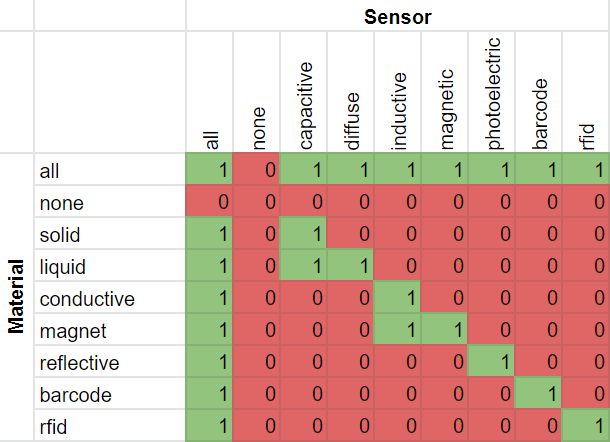Motion surface
Defines the collision surface parameters that has motion_direction and motion_speed variables, in addition to the regular surface. It is usefull to model conbeyor belts and moving surfaces.
Mandatory children
-
Bounciness: Bounciness coefficient of restitution. When two objects collide, the total restitution is the multiplication of both values. Setting one to 0.0 will null out bounciness.
- Var: smtk_coefficient
- Type: Input
- Default: 0.1
-
Friction: Static friction value of the surface. A good approximation would be that the friction between two surfaces A and B equals to max(A, B, A*B). A result of 1 would mean no friction.
- Var: smtk_float
- Type: Input
- Default: 0.5
-
Motion direction: A normalized vector3 that indicates the direction for the movement.
- Var: smtk_vector3
- Type: Input
- Default: 0 0 0
- Values info: x y z
-
Motion speed: The module of the speed for the motion in m/s.
- Var: smtk_float
- Type: Input
- Default: 0
Optional children
-
Collision tag: Collision material properties. If no property is set, solid will be enabled by default.
- Var: smtk_collision_material_array
- Type: Input
- Possible values: "all", "none", "solid", "liquid", "conductive", "reflective", "barcode", "rfid", "magnet"
- Default: "solid"
-
Collision group: Collision group number. If not used, the object will collide with all objects.
- Var: smtk_collision_group_array
- Type: input
- Possible values: "group_1", "group_2", "group_3"
- Default: "group_1"
Info
Below is a table showing which materials can be detected by the different sensor technologies.
